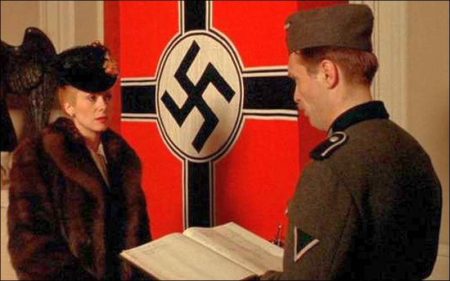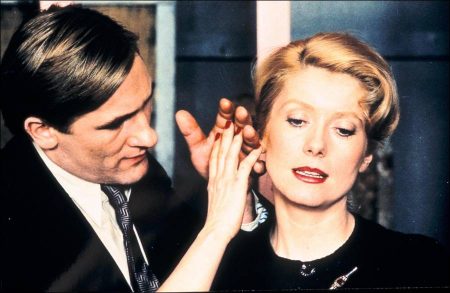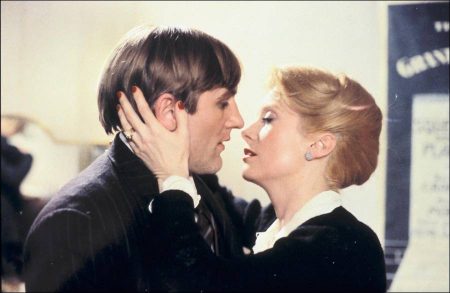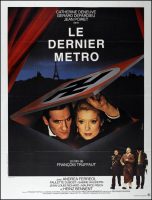Taglines: A story of love and conflict.
The Last Metro movie storyline. Paris, 1942. With the Germans in control and her Jewish theatre producer-director husband on the run from them, an actress, Marion Steiner (played by Catherine Deneuve) is left with the task of running his theatre. She starts rehearsals for a new play, written by her husband, and hires a new director and a leading man, Bernard Granger (Gerard Depardieu).
It’s make or break, as a flop will see the theatre go bankrupt. This, with the Germans clamping down on everything and the city’s biggest drama critic an anti-semite and Nazi pawn, means it’s going to be tough. Meanwhile, (known to her) her husband is hiding in the cellar, and he can’t help but offer suggestions on the finer details of the play.
The Last Metro (French: Le Dernier Métro) is a 1980 historical drama film, written and directed by François Truffaut, that stars Catherine Deneuve and Gérard Depardieu. Opening in 1942 during the German occupation of France, it follows the fortunes of a small theatre in the Montmartre area of Paris which keeps up passive resistance by maintaining its cultural integrity.
Despite censorship, antisemitism and material shortages, to emerge triumphant at the war’s end. The title evokes two salient facts of city life under the Germans: fuel shortages led people to spend their evenings in theatres and other places of entertainment, but the curfew meant they had to catch the last Métro train home.
In 1981, the film won 10 Césars for: best film, best actor (Depardieu), best actress (Deneuve), best cinematography, best director (Truffaut), best editing, best music, best production design, best sound and best writing. It received Best Foreign Film nominations in the Academy Awards and Golden Globe Awards.
The Last Metro was one of Truffaut’s more successful productions, grossing $3,007,436 in the United States; this was also true in France, where it had 3,384,045 admissions, making it one of his more successful films in his native country.
About the Production
Truffaut had wanted to create a film set during the French occupation period for a long time, as his uncle and grandfather were both part of the French Resistance, and were once caught while passing messages. This event was eventually recreated in The Last Metro. Truffaut was inspired by the actor Jean Marais’s autobiography, basing the film on this and other documents by theatre people from during the occupation.
This film was one installment—dealing with theatre—of a trilogy on the entertainment world envisaged by Truffaut. The installment that dealt with the film world was 1973’s La Nuit Américaine (Day for Night), which had won the Academy Award for Best Foreign Language Film. Truffaut completed the screenplay for the third installment, L’Agence Magique, which would have dealt with the world of music hall. In the late 1970s he was close to beginning filming, but the failure of his film The Green Room forced him to look to a more commercial project, and he filmed Love on the Run instead.
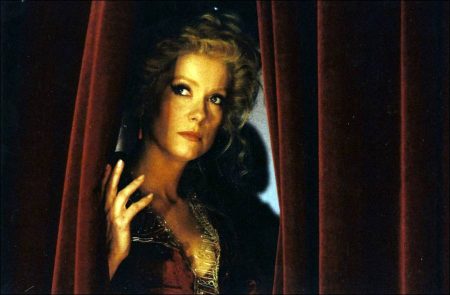
Truffaut began casting in September 1979, and he wrote the role of Marion especially with Catherine Deneuve in mind for her energy. Gérard Depardieu initially did not want to be involved in the film, as he did not like Truffaut’s directing style, but he was subsequently convinced. Most of the filming took place in an abandoned chocolate factory on Rue du Landy in Clichy, which was converted into a studio. During shooting Deneuve suffered an ankle sprain from a fall, resulting in having to shoot scenes at short notice. Scriptwriter Suzanne Schiffman was also hospitalised with a serious intestinal obstruction. The film shoot lasted fifty-nine days and ended on 21 April 1980.
Themes
A recurring theme in Truffaut’s films has been linking film making and film watching. The Last Metro is self-conscious in this respect. In the opening the film mixes documentary footage with period re-creations alongside shots of contemporary film posters.
Truffaut commented “this film is not concerned merely with anti-semitism but intolerance in general” and a tolerance is shown through the characters of Jean Poiret playing a homosexual director and Andrea Ferreol plays a lesbian designer.
As in Truffaut’s earlier films Jules et Jim and Two English Girls, there is a love triangle between the three principal characters: Marion Steiner (Deneuve), her husband Lucas (Heinz Bennent) and Bernard Granger (Depardieu), an actor in the theatre’s latest production.
The Last Metro (1980)
Directed by: François Truffaut
Starring: Catherine Deneuve, Gérard Depardieu, Jean Poiret, Heinz Bennent, Andréa Ferréol, Paulette Dubost, Sabine Haudepin, Maurice Risch, Marcel Berbert, Richard Bohringer, László Szabó
Screenplay by: François Truffaut, Suzanne Schiffman, Jean-Claude Grumberg
Production Design by: Jean-Pierre Kohut-Svelko
Cinematography by: Néstor Almendros
Film Editing by: Martine Barraqué
Costume Design by: Lisele Roos
Music by: Georges Delerue
MPAA Rating: None.
Distributed by: Gaumont, United Artists Classics
Release Date: September 17, 1980
Views: 240
